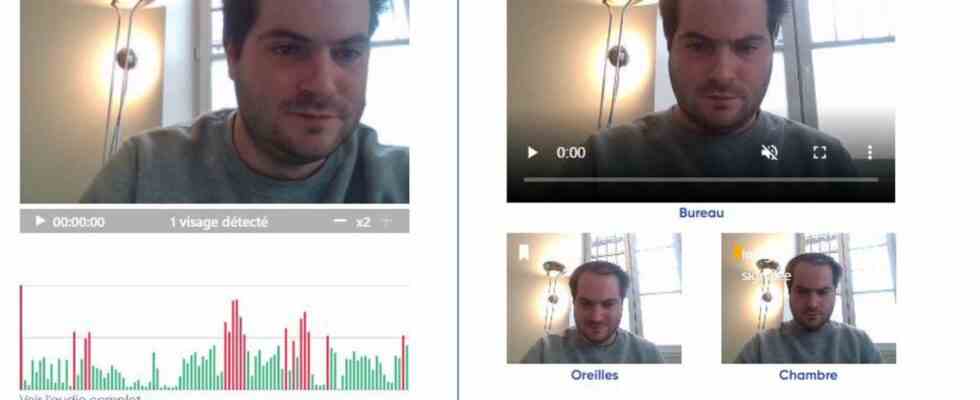They thought they were smarter than the others, but were caught red-handed. Candidates for post-baccalaureate business school entrance examinations have cheated during the admissibility tests. Due to the Covid-19 epidemic, these took place remotely this year for the Sésame competition bank (giving access to 14 schools) and that of the Access competitions (Esdes, Essca and Iéseg).
The 11,600 candidates of Sesame had to pass 6 tests in the form of MCQs, and the 7,000 of Access 4 tests (including 3 in the form of MCQs). “We had 73 suspicions of cheating this year and we found 40 cases of proven fraud (i.e. 0.34% of candidates)”, indicates Thomas Lagathu, director of Sesame. The suspicions of fraud for Access were, they, numbered 203, “for the final 27 cases actually observed (ie 0.4% of the candidates)”, indicates Céline Verdrière, head of competition at Iéseg. The culprits were able to bite their fingers, since they received a ban on these competitions for five years.
“In case of suspicious behavior, an alert is sent to us”
If the number of frauds is ultimately low even though the remote formula seems more conducive to cheating, it is because the organizers have implemented very strict control mechanisms. First of all, the platform on which the candidates take their tests is secure. A system that is used by universities and colleges in several countries. “Once the candidate enters his examination space, his computer is locked: no application is accessible, as is access to the Internet”, explains Céline Verdrière. It is also impossible for the candidate to share the screen with another computer.
Those who would consider having their hyper-gifted big brother take their place also risk disappointment: “A facial recognition system ensures correspondence with the candidate who takes the test,” says Céline Verdrière. For Sesame, “the candidate must show his identity document next to his face before the start of the test. He must also film his entire working environment, the room where he is going to compose, show his ears in front of the camera”, describes Thomas Lagathu. And from the start, the high school students are under close surveillance. “They are photographed every 5 seconds, and the platform records sounds and images. In the event of questionable behavior, an alert is sent to us”, continues the director of the Sésame competition. For Accès “the written tests are all remotely monitored in real time by 400 people. The supervisors report any suspicious attitude, ”says Céline Verdrière.
“We also track those who brag about having cheated on social networks”
Additional guarantee for the two banks of tests: the MCQ questions are presented randomly. In addition, the control of the images is not carried out only by software, but also by human beings: “At the end of the tests, 200 people are assigned to view 60,000 videos of the tests for ten days. If a candidate talks to someone, seems to be staring at something next to their screen a lot, or if another person is standing in the room, we’ll quickly notice. And we also track those who boast of having cheated on social networks, ”warns Thomas Lagathu. For Access, in addition to live remote monitoring, the organizers check the videos of the people reported and also take a look to see if there is a correlation between the candidate’s marks in his Parcoursup file and his performance during the tests.
Anti-fraud weapons that seem very efficient, “even if there is no 100% waterproof system”, recognizes Thomas Lagathu. The fact remains that the media coverage of the sanctions imposed on cheaters is enough to deter those who have a desire to cheat next year. Because although it is still unclear whether the tests for access to post-baccalaureate business schools will take place at a distance, the formula is intended to be developed in higher education. “This allows candidates to avoid transport and accommodation costs,” said Thomas Lagathu. Which is significant when you know that the presentation to the competitions costs 290 euros for Sesame and 190 euros for Access. “It’s also a lot less stressful for the candidates. And easier for those with a disability”, also underlines Céline Verdrière.

